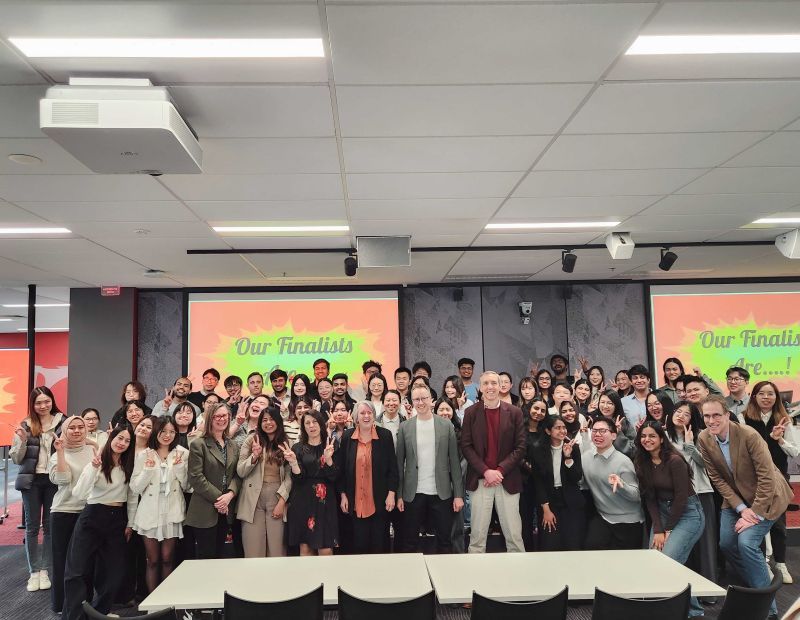Masters students from Monash University Business School came together for the 2025 Social Impact Hackathon — a two-day challenge to design sustainable, real-world business solutions for Gerrbik Laundry Services, Victoria’s first First Nations-owned commercial laundry and a valued First Australians Capital (FAC) customer.
The collaboration was sparked when Monash approached FAC seeking a “candidate organisation” for their annual hackathon — a hands-on learning program run in partnership with Practera that connects students with live business challenges. FAC, recognising both the opportunity and the alignment in values, immediately thought of Gerrbik and its owner, Nicole Stewart. Since financing Gerrbik in May 2024 to acquire new commercial-grade washing and drying equipment, including a state-of-the-art Japanese-made automated blanket folder, FAC has continued to walk alongside Nicole as the business expands its footprint and impact.
Together, Monash, FAC and Gerrbik designed a challenge centred on one of the business’s key priorities: reducing environmental impact while upholding Indigenous values of care for Country, Culture and Community. Over two days, ten teams of postgraduate students worked intensively to explore ways to reduce plastic waste, improve water stewardship, and embed sustainability deeper into Gerrbik’s operations and brand story.
FAC’s team — Felicity, Tamika and Ruairidh — supported the design of the challenge to ensure it reflected Gerrbik’s real operational context. During the hackathon itself, FAC’s Ruairidh served as both a mentor and final judge, sitting alongside Nicole Stewart on the judging panel.
Nicole Stewart: “That was amazing to be a part of, watching what the students came up with in their very short timeframes was exceptional…I was honoured to be involved”.
The hackathon delivered more than just ideas — it offered tangible, forward-looking opportunities. Students presented a range of implementable strategies to cut down plastic use and optimise water efficiency, as well as creative branding concepts to position Gerrbik’s sustainability commitments as a defining strength. Each team’s pitch deck was handed over to Nicole, giving Gerrbik a rich library of potential solutions to draw from as the business continues to evolve.
The winning team, Cone Consulting, stood out for their actionable, culturally aligned strategy to reduce plastic waste while authentically communicating Gerrbik’s story and values. They took home a $2,000 prize, but the real win was shared — for Gerrbik, Monash, and FAC alike — in seeing how cross-sector collaboration can spark new pathways toward impact, inclusion, and innovation.

